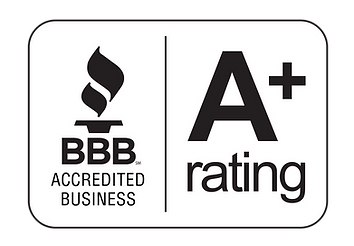ATTORNEY FEE DEFERRALS 2026
Deferred Attorney Fee Planning, Structured Attorney Fees and Attorney Fee Deferrals
ATTORNEY FEE DEFERRAL EXPERTS 2026
BUILD STABLE CASH FLOWS WITH ATTORNEY FEE DEFERRALS
ADDRESS PERSONAL NEEDS
1. Let's help you build a stable income stream for a lifetime
- Attorney fee deferral is a compelling and helpful pre-tax investment tool for income tax, financial and estate planning that’s available to contingency fee lawyers and law firms.
- Use structured attorney fees as a volatility buffer.
- Attorneys can structure your fees even if a client does not structure.
ADDRESS BUSINESS NEEDS
2. Let's help you build stable deferred cash flow to fund forward looking business overhead
- Attorney fee deferral is available even when the lawyer or law firm's clients choose not to structure their settlement
- When you defer your attorney fee, you have a larger fee deferral starting point. All of your attorney fee can be working for you, not just the after-tax amount. As the size of the attorney fee deferral increases, the more the impact on your long term growth over time. The difference could be hundreds of thousands dollars or more.
- Help fund future case expenses and business development
- Ongoing funding for a bonus pool incentive for partners and associates.
What's the Difference between Structured Attorney Fees and Attorney Fee Deferral?
Structured attorney fees are also known as structured legal fees, attorney fee structures or simply "fee structures". The terms generally refer to an annuity funded deferral mechanism. There are fixed, indexed options and hybrid options for structured attorney fees,
Attorney fee deferral is a broader term that also encompasses market-based structured settlement and other attorney fee deferral options for attorneys that may or may not include an annuity component.
We're dedicated to ensuring that we take care of all of our clients, and that their settlement planning needs are met and exceeded. We offer attorneys high-quality settlement planning, financial planning and Sudden Money® transition planning advice and personal client service.
FIXED AND MARKET BASED ATTORNEY FEE DEFERRAL OPTIONS ARE AVAILABLE
A. Structured Settlement Annuity-Funded Attorney Fee Deferrals
Contingency fee attorneys can defer legal fees through the use of a fixed structured settlement annuity, funding agreement or an index linked structured settlement annuity. You select the amounts and payout dates at the time of the deferral. With the exception of fixed index structured settlement annuity payment adjustment options , the rate of return is fixed .
Structured settlement annuities are issued by large well-capitalized life insurance companies that are highly regulated, just like the structured settlements established for the attorney's clients. The process for setting up structured attorney fees is very similar to the process for the attorney's or law firm's clients.
B. Investment Account Attorney Fee Deferral Option
Contingency fee attorneys have a market-based option through the use of an investment account that follows the well-established deferred compensation plan rules and guidelines. There is an investment account option that provides additional flexibility for payout dates. Rather than having to decide when payments will be made, under this approach, attorneys can decide at a future date when they would like to receive those future payments.
Benefits of Attorney Fee Deferral Programs to Contingency Fee Lawyers or Law Firms
- Using attorney fee deferrals, contingency fee lawyers and their firms can put all of the allocated fee to work, not just the after-tax part of their attorney fee.
- By structuring attorney fees or legal fees over several years, or attorney fee deferrals of longer duration, may help attorney or law firm, taxpayers avoid a higher marginal tax bracket, allowing the money saved (resulting from deferred current income taxes) to be invested at little to no risk with no initial or ongoing money management fees. The attorney or law firm (In the case of an attorney fee structure where law firm is payee) receives a 1099 in the year in which structured attorney fee payments are received.
- As a volatility buffer, structured attorney fees provide a source of low risk guaranteed income to the attorney or law firm to match up against future business overhead expenses. Structured attorney fees can be fully customized. You define your future without the market risk.
- Those attorneys who have more risk tolerance have the investment account options with attorney fee deferrals. See examples below and contact us for details.
- Inidvidual attorneys OR law firms can use attorney fee deferrals to smooth out future cash flow.
- Attorneys or law firms can effectively defer income in excess of qualified pension plan contribution limits, or the annual administrative and regulatory burden required of employee benefit plans. There is no need to wait age until 59 1/2 before receiving distributions.
- Structure attorney fees enable lawyers to replicate Social Security and defer taking Social Security until age 70 when benefits will start out a higher amount. Deferring from normal retirement age to age 70 will result in 30% higher monthly Social Security payments. Normal retirement age is 66 for lawyers born 1954-1959 and age 67 for lawyers born after 1960.
- No contribution limits! Lawyers getting close to retirement who need to catch up can layer several structured legal fee payment streams from several cases to build an income portfolio or fill income gaps. You can use structured attorney fees on a case-by-case basis.
- Provide a source of funds for future buy-sell agreement
- Provide a source of annual funding for a defined benefit pension plan
- Attorney fee deferrals can be used as a tool to attract and retain partners and associates
- Attorney fee deferrals are not just for big cases. There are low minimums. Structure/defer a little on each case and build a portfolio of income streams.
- On cases with certain types of taxable damages, attorney fee deferrals can help mitigate your clients' exposure to the Alternative Minimum tax (AMT) in the tax year of the settlement.
- With certain Non-Qualified Deferred Compensation programs for law firms, a separately underwritten loan may be possible at lower than the cost of litigation finance firms,
although in view of the December 2022 Generic Legal Advice Memorandum (GLAM) issued by the IRS it may be wise to avoid this Aggressive Approach. See Tax Benefits Continue For Trial Lawyers, But Lines Are Drawn
(forbes.com) January 15, 2023. Also see Transcript of Oral Argument of Michael R.. Pahl, Esq. , United States Department of Justice Tax Division, in United States of America v Tate Johnson Southern District of Ohio, Western Division, Case No. 1:24-mc-00013 Document 16 p 9 from line 6, through page 10, from the January 24, 2025 Show Cause Hearing.
As attorney fee deferral experts, we listen to your needs and help you navigate the choices.
DRILLING DOWN ON ATTORNEY FEE DEFERRAL OPTIONS
There are several attorney fee deferral tools on the shelf and the variety of options is expanding:
Fixed Attorney Fee Deferral Options and Structured Attorney Fees
- Traditional structured attorney fees funded with fixed structured settlement annuities
- Traditional structured attorney fees using a funding agreement issued by domestic life insurance company, such as American General or United States Life Insurance Company in the City of New York
- Domestic non-qualified assignment using structured settlement annuity
- Structured attorney fees using a reinsurance mechanism instead of a non-qualified assignment
- Structured attorney fees using Treasury Funded Structured Settlements
Index Linked Attorney Fee Deferral Options and Structured Attorney Fees
- Prudential Income Advantage | Structured Settlement Index Linked Annuity, introduced in October 2023. Prudential's Income Advantage has multiple options. Returns accrue from the start, not just when payments begin. Prudential sought and obtained IRS Private Letter Rulings in favor of its annuity issuer, The Prudential Insurance Company of America and Prudential Assigned Settlement Services Corporation (PASSCORP), its qualified assignment company, to support its Income Advantage structured settlement annuity. To read more details about Prudential Income Advantage, including copies of both Private Letter Rulings and an income Advantage product brochure, please click here.
- Structured attorney fees using ILAPA, an S&P 500 index linked structured settlement annuity payment rider from Pacific Life. Pacific Life sought and obtained an IRS Privaye Letter Ruling to support its ILAPA feature. Pacific Life's product was introduced in 2014 with a 5% cap on participation, A second generation product is in the works. Stay tuned for Q1 2026.
- Structured attorney fees using iStructure Classic and the iStructure Select, Independent Life’s next generation uncapped fixed index structured settlement annuity linked to changes in the Franklin BofA World Index or other index options. With IStructure, attorneys can seek higher potential payouts, adding protection against inflation.
- Non-qualified assignment, using a non-domestic assignment company that is funded with retail fixed indexed annuities
Market Based Attorney Fee Deferral Options
- Havelet Assignment Company, uses a Barbados non-qualified assignment program with periodic payment obligations funded by customized private placement annuities. Fixed and Market- Based solutions are available
- Fee Structure Plus®, uses Structured Assignments, SCC, a Barbados non-qualified assignment program with open architecture, that allows for a passive or active investment management approach using a respected financial institution, or the lawyer's personal financial advisor
- A similar program, to Fee Structure Plus os available using United Assigments, SCC, a Barbados non-qualified assignment program with open architecture, that allows for a passive or active investment management approach using a respected financial institution, or the lawyer's personal financial advisor
- Assura Trust, a split funded which blends a traditional structured settlement funded with a structured settlement annuity and an investment backed periodic payment stream determined based on an objective formula and the performance of a Vanguard fund held in the trust.
- Non-Qualified Deferred Compensation for law firms (Jurisprudent and OptCapital) as a means to defer income, using a domestic market-based solution as well as establishing an incentive program to attract and retain quality partners and associates. Totally onshore, domestic USA and may have option for a separately underwritten loan.
Watch our video about non-domestic assignment companies and where they may be appropriate
Bankruptcy and Structured Attorney Fees
Payments may be exempt from creditors. For example, the ruling
In re John J. Lynch, Debtor, 321 B.R. 114 (S.D.N.Y., Feb. 10, 2005) found that that payments from the CNA annuity funding the attorney fee structure, which attorney. John Lynch accepted in settling a 2003 case, was not available to creditors in bankruptcy. Lynch filed for bankruptcy in 2004. When the Bankruptcy Trustee tried to use the annuity to pay Mr. Lynch’s creditors, Mr. Lynch resisted, arguing that to do so would pose a hardship on him. Applying New York law, the U.S. Bankruptcy Court sided with Mr. Lynch and ruled that the annuity was exempt from the reach of creditors. A similar conclusion under Louisiana law was reached in
Canfield v. Orso, 283 F.3d 686 (5th Cir. 2002) . In that case, the Court of Appeals for the Fifth Circuit also held that an attorney fee structure was beyond the reach of the attorney ’s creditors. These rulings are helpful, but readers should realize that each state has its own bankruptcy exemptions that might be applied to reach a different result.
Related Tax Information
1. The U. S. Court of Appeals for the 11th Circuit affirmed in Richard A. Childs, Et al. v Commissioner of Internal Revenue 103 T.C. No. 36 Docket No. 15639-92 (1)(2) that attorneys may structure their fees, holding that taxes are payable on structured attorney fees when the amounts are received. (3)
The Court held that the fair market values of the taxpayers rights to receive payments under the settlement agreements in the case were not includable in income under Sec. 83, in the year settlement agreements were effected, since the promises to pay under the structured settlements were neither funded or secured and thus did not meet the definition of property for purposes of Sec. 83 The Court further held that the doctrine of constructive receipt is inapplicable because the taxpayer had no right to receive the attorney’s fees prior to the time the agreement fixing a structured settlement was entered into.
2. Citing Childs v Commissioner the IRS issued a Field Service Advisory (200151003) on December 21, 2001 concerning constructive receipt and attorney fee structuring arrangements. The IRS, on page 9 of the Field Service Advisory states, "where attorneys entered into a structured settlement which called for deferred payments of their fee,
and the settlement was entered into prior to obtaining an unconditional right to compensation for their legal services , the court held that they had not constructively received income upon the purchase of the annuity contracts meant to provide payment for the legal services fee".
3. The IRS also cited Childs, among other cases, in issuing PLR 200836019 in an employment case where it ruled that the employee was not deemed to have received any payments when the employer paid funded the structure with the assignment company.
4. Section 409A of the Internal Revenue Code (included in the American Jobs Creation Act of 2004) initially brought concerns of changes to the tax treatment of structured attorneys’ fees. The Department of Treasury ("Treasury") and Internal Revenue Service issued comprehensive guidance interpreting new Section 409A. The guidance in Treasury Notice 2005-1 excludes most service provider arrangements from the scope of Section 409A. The Treasury Notice states:
A-8…Section 409A…DOES NOT APPLY to arrangements between a service provider and a service recipient if (a) the service provider is actively engaged in the trade or business of providing substantial services, other than (I) as an employee or (II) as a director of a corporation; and (b) the service provider provides such services to two or more service recipients to which the service provider is not related and that are not related to one another.
The guidance cautions that other tax principles may apply.
5. In January 2025, in yet another IRS cite of Childs, in the matter of United States v. Tate Johnson (Brook Hollow), the IRS confirmed that Childs-compliant arrangements remain legally valid and are not the target of enforcement efforts. During oral arguments, IRS counsel recognized that if income is genuinely deferred in a Childs-compliant manner, it is not subject to taxation in the year of settlement. See source citation and excerpt immediately below.
"Basically, it starts with this case, Childs, which is an Eleventh Circuit case. And the easiest way to understand this -- and this comes from Brook Hollow's own website and their own promotion. Let's suppose, for example, you're doing a mass tort claim and you receive $10 million as part of your settlement. Well, the current marginal tax rates are 10 percent to 37 percent. If you're the attorney and after you've paid your client off, let's just suppose it's a third, and the rest of the money is coming in. Well, if it comes in to you and if you have constructive receipt of that income in that year, you'd be facing the highest marginal tax rate, 37 percent. But if you can defer it through some way, just as one would defer compensation as a regular employee, if you can defer it to a later date and not get paid essentially, it's not going to be treated as income in that tax year, you're not going to be subject to that marginal tax rate. And in Childs and other cases, certainly, there's facts and circumstances where those arrangements are legal. The question is whether or not the taxpayer constructively receives the income in the year. So just like when you have a deferred comp. arrangement, you say I took $10,000 and I said I don't want that now, I want it when I'm 70, and you'll be taxed on it when you're 70 hopefully at a lower marginal tax rate"
Source: Oral argument of Michael R.. Pahl, Esq. , United States Department of Justice Tax Division, in United States of America v Tate Johnson Southern District of Ohio, Western Division Case No. 1:24-mc-00013 Document 16 p 8 lines 5-23 Transcript of Proceedings before The Honorable Stephanie K. Bowman, Magistrate Judge in the January 24, 2025 Show Cause Hearing
Deferred Attorney Fee Planning
- Careful planning must be done in advance should you wish to structure your attorney fees, or use an attorney fee deferred compensation payment plan! We can help. There's no reason to feel intimidated by this.
- Don't wait until the last minute!
- Call John Darer at 4structures.com, LLC toll-free at 888-325-8640!
Generally, an attorney or law firm can structure a portion (or all) of their fees when:
- The attorney's or law firm's contingency fee agreement permits the structuring of all or a part of attorney's fees. Other critical issues to be addressed, arise out of the form of business under which the law firm operates and such issues (and their impact on the law firm or is partners or shareholder ability to structure legal fees) will vary from law firm to law firm.
- The attorney or law firm does not have actual or constructive receipt of the funds. Extra care should be taken in drafting settlement documents.
- The guidelines set forth in the Childs case are followed
- The requirements and/or guidelines of the structured issuing life insurance company, assignment company, or the deferred payment solution facility, are followed.
- The insurer or defendant does not object to structured attorney fees. Some insurers have a long-standing bar on participating in structured attorney fees. This can be problematic if the fees an attorney or law firm wishes to structure arise, it's an insured of the unwilling insurer, and it's December and there are no other co-Defendants or Insurers whose contribution to the settlement funding amount can be used. A few other companies will only allow the attorney to structure if the plaintiff structures as well. Plan accordingly by involving a attorney fee deferred expert in advance of case settlement to go over your settlement planning options for attorney fee deferral.
- A Travelers entity is NOT the insurer paying out on the claim. Travelers has had a longstanding unwillingness to participate in structuring attorney fees for their own business reasons. Read more here. We have heard through the grapevine, but not confirmed that this may have relaxed a little if the plaintiff is also structuring. If you have a potentially large settlement with a Travelers insured on your radar and you seek an annuity backed attorney fee deferral, it may be better to plan ahead and defer the fees on other cases. An attorney fee deferred compensation solution may be helpful in the alternative. Call to discuss.
Does a Qualified Settlement Fund Need to be Established to Structure or Defer Attorney fees?
It is not necessary to establish a qualified settlement fund in order to structure or defer attorney fees. There are a few settlement planners who aggressively push qualified settlement funds and misrepresent that it's the only way for you to benefit from structured attorney fees or other attorney fee deferral programs. There are many options that do not need a QSF.
It is also recommended that attorneys contemplating attorney fee deferral strategies, consult with competent tax counsel prior to entering into a structured attorney fee or any other form of attorney fee deferral transaction.
Helpful articles and media on Structured Attorney Fees and Attorney Fee Deferral Plans
- Legal Fee Structures Can Hedge the Insecurities That Many Lawyers Face
, by San Francisco tax attorney Robert W. Wood, author of
Taxation of Damages and Settlement Payments
- Guide to Personal Injury Attorney Fee Tax Deferral Plans | Overview for Year End Tax Planning, by John Darer® CLU ChFC CeFT MSSC RSP CLTC
- Deferred Compensation | Structured Attorney Fee Alternative for Trial Lawyers
, a Talking Settlement™ video segment featuring John Darer® and Leif Lundberg CEO of JurisPrudent LLC
Footnotes
(3) Although the 11th Circuit Court of Appeals upheld the deferral of attorney fees in Childs, attorneys should be careful not to rely too heavily on it. The facts in that case are quite specific and the result reached in Childs should not be relied upon in cases that are materially dissimilar. However, it should be noted that the IRS has cited to Childs in subsequent Private Letter Rulings.
(4) Copy of March 2023 Legal Opinion Obtained by Pacific Life in relation to the December 2022 IRS GLAM.
#deferredattorneyfeeplanning #structuredsettlementsforattorneys #structuredattorneyfees #structuredlegalfees #attorneyfeedeferrals #deferredcompensationforlawyers #attorneyfeedeferralexpert #attorneyfeedeferrals2025 #feestructureplus #havelet #jurisprudent #assuratrust #investmenbackedattorneyfeedeferral #marketbasedattorneyfeedeferral #structuredfixedindexannuity #deferredattorneyfeeplanning #iStructure #pretaxinvesting. #attorneyfeedeferredcompensation #structuredattorneyfeesct #structuredattorneyfeenewyork #2022IRSGLAM. indexstructuredattorneyfees #feestructureplus #feestructure #childscase
Last updated November 9, 2025






